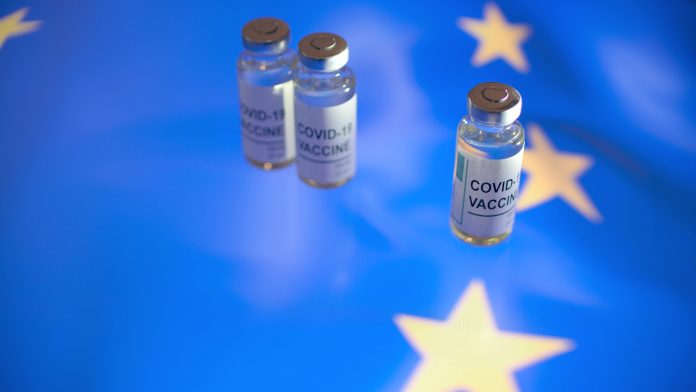The European Commission on Thursday (6 May) responded to a US declaration of support for the TRIPS waiver, stating that they were open to further discussions without explicit agreement
On Wednesday (5 May), the US declared support for the TRIPS waiver. Ambassador for Trade Katherine Tai released a statement on behalf of the Biden administration, voicing support for the India-South Africa proposal at the World Trade Organisation (WTO).
What is the TRIPS waiver?
If passed, the waiver would temporarily suspend an intellectual property law that currently makes it impossible for poorer countries to access or manufacture COVID vaccines.
Those who do not support the TRIPS waiver argue that there are already mechanisms in the agreement for a situation like this. However, developing countries can run into expensive legal problems when using these mechanisms, as pharmaceutical companies remain highly defensive of their drugs.
Until this week, the US has been one of the countries voting against the TRIPS waiver at the WTO. Other holdouts include Canada, the United Kingdom, Australia and the European Union.
Will the EU support the change?
Pressured by the US to acknowledge the possibility, President Ursula von der Leyen indicated future negotiations were available but that the EU preferred not to pass the WTO waiver.
However, as the deaths across countries like India and South Africa continue, pressure is growing on the world’s richest countries.
Speaking to the European University Institute on Thursday (6 May), President von der Leyen said: “The European Union is also ready to discuss any proposal that addresses the crisis in an effective and pragmatic manner. That is why we are ready to discuss how the U.S. proposal for a waiver on intellectual property protection for COVID-19 vaccines could help achieve that objective.
“In the short run, however, we call upon all vaccine producing countries to allow exports and to avoid measures that disrupt supply chains.”
In the same speech, President von der Leyen highlighted several times that the EU is exporting millions of vaccines to several countries, “COVAX included.”
The COVAX scheme is a humanitarian programme by the World Health Organisation, that is intended to supply poorer countries with vaccines. Despite the purpose of the scheme, in reality not many poorer countries have received substantial deliveries of doses. The scheme is currently in “urgent” need of 20 million doses, donated from richer countries to cover the loss of supplies due to the crisis in India – which is a key manufacturer of AstraZeneca.
Currently, many poorer countries will not be able to begin vaccination until 2023.











